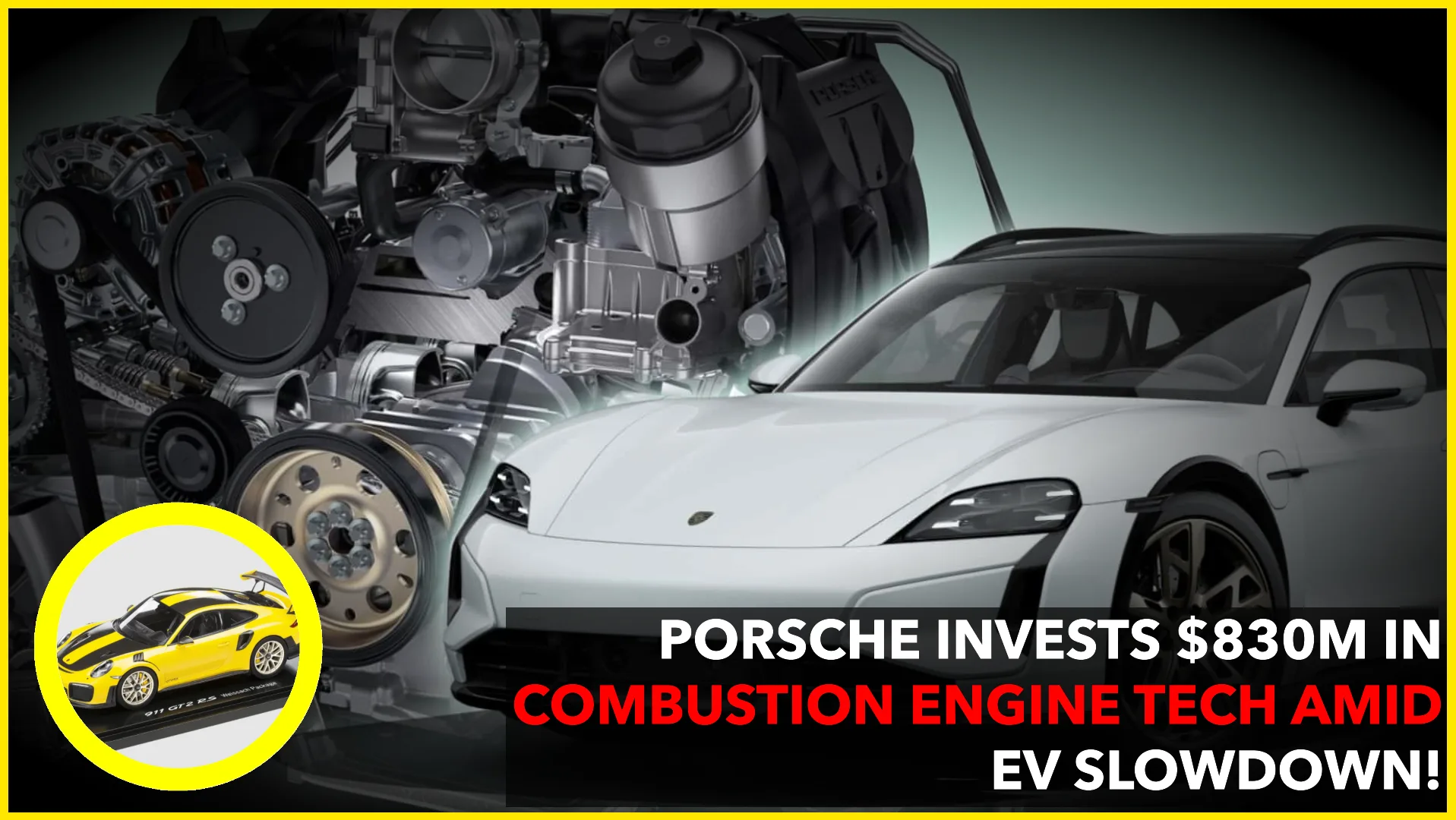In a significant shift in its strategy, German luxury carmaker Porsche has announced plans to invest approximately $830 million (€750 million) into internal combustion engine (ICE) technology. This move comes as the company faces slowing electric vehicle (EV) demand in key markets, prompting it to reinforce its commitment to traditional engines alongside electrification.
Strategic Investment in ICE Technology
Porsche’s substantial investment signals a recalibration of its product strategy, where internal combustion engines will continue to play a crucial role. The automaker aims to enhance its existing ICE models and optimize hybrid technology, ensuring better performance and efficiency while meeting stringent emissions regulations.
The company’s decision highlights a broader industry trend where car manufacturers are reassessing their electrification plans amid fluctuating consumer demand and economic uncertainties. While EV adoption continues to grow, the pace has slowed, with factors such as high vehicle costs, inadequate charging infrastructure, and range anxiety contributing to a more cautious approach among consumers.
Challenging Market Conditions
Porsche has been at the forefront of the electric revolution, with models like the Taycan leading the charge. However, softer EV sales have posed challenges, particularly in competitive regions such as China and Europe. China, the world’s largest automotive market, has seen intense competition from local EV brands, making it more difficult for foreign automakers to maintain dominance.
In Europe, the transition to electric mobility has been impacted by economic headwinds, supply chain disruptions, and rising energy costs. Many consumers remain hesitant to switch to EVs due to the high price point and concerns over the availability of charging infrastructure. As a result, Porsche’s move to bolster its combustion engine offerings aligns with the changing market dynamics, ensuring that the company remains flexible in its approach.
Balancing ICE and EV Development
While Porsche is increasing investment in combustion engine technology, it remains committed to electrification. The company has already made significant progress in EV development, with the Taycan becoming a strong competitor to Tesla and other premium electric cars. Additionally, Porsche plans to launch electric versions of its popular Macan and 718 models in the coming years.
However, the company acknowledges that a complete transition to EVs will take time, and consumer preferences vary by region. By refining its ICE and hybrid models, Porsche can cater to a broader audience, particularly in markets where EV adoption remains relatively slow.
Industry-Wide Implications
Porsche’s decision to allocate nearly a billion dollars to internal combustion engine technology underscores a growing sentiment among automakers that the transition to EVs must be balanced with traditional powertrains. Other leading car manufacturers, including BMW and Toyota, have also expressed a commitment to maintaining ICE options while advancing electric and hybrid technology.
This shift is particularly relevant as governments worldwide reconsider their timelines for banning combustion engines. Several countries had initially set aggressive targets for phasing out ICE vehicles, but recent economic challenges and pushback from the automotive industry have led to more flexible policies. For example, the European Union recently extended its deadline for banning new gasoline and diesel cars, acknowledging the need for a pragmatic approach.
Future Prospects for Porsche
As Porsche navigates a complex automotive landscape, its diversified strategy aims to strike a balance between innovation and market demand. The company remains dedicated to sustainability, with investments in synthetic fuels (e-fuels) that can reduce carbon emissions in combustion engines. This alternative fuel source could provide an eco-friendly solution for customers who prefer ICE vehicles while aligning with Porsche’s environmental goals.
Furthermore, Porsche’s expansion in ICE development does not mean a step back from electrification. Instead, it reflects a more adaptive strategy that considers evolving consumer preferences, regulatory shifts, and economic factors.
Conclusion
Porsche’s $830 million investment in combustion engine technology marks a pivotal moment in its approach to mobility. As the EV market faces challenges, the automaker is ensuring that it remains competitive by refining its traditional engines while continuing its electrification efforts. This strategy positions Porsche to cater to a diverse global audience, balancing innovation with practicality in an ever-evolving automotive industry.










